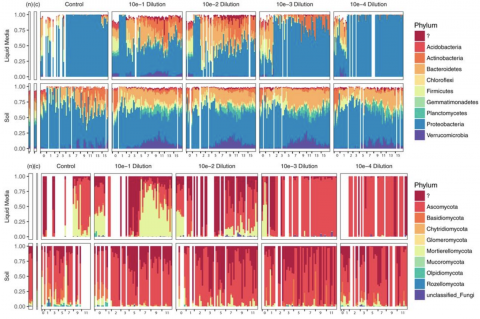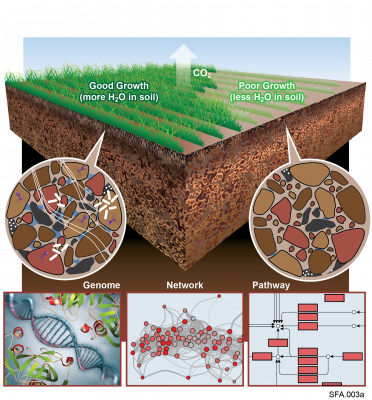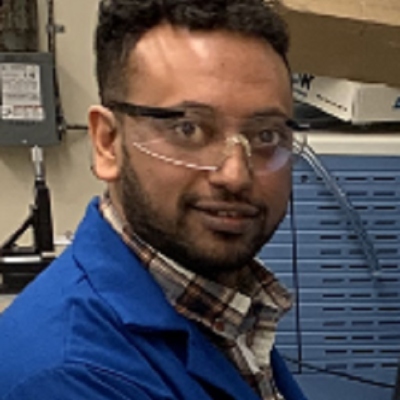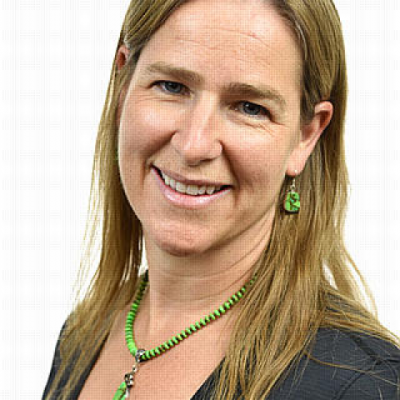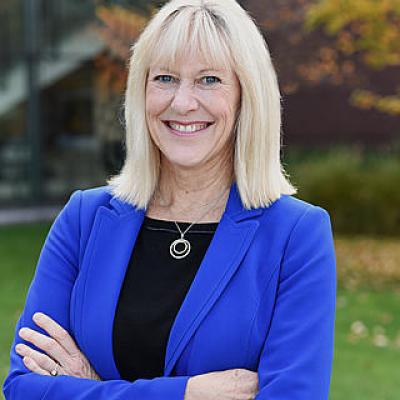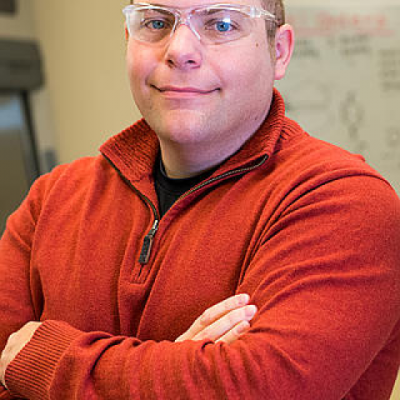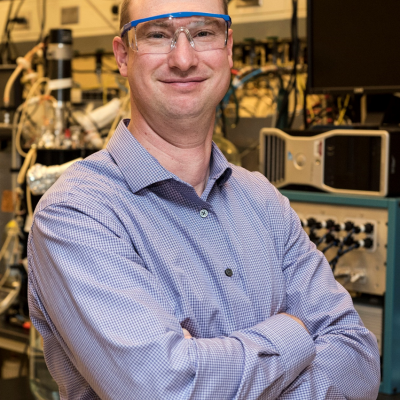Soil microorganisms play fundamental roles in cycling of soil carbon, nitrogen, and other nutrients, yet we have a poor understanding of how soil microbiomes are shaped by their nutritional and physical environment. In this study, we investigated the successional dynamics of a soil microbiome during 21 weeks of enrichment on chitin and its monomer, N-acetylglucosamine. We examined succession of the soil communities in a physically heterogeneous soil matrix as well as a homogeneous liquid medium. The guiding hypothesis was that the initial species richness would influence the tendency for the selected consortia to stabilize and maintain a relatively constant community structure over time. We also hypothesized that long-term, substrate-driven growth would result in consortia with reduced species richness compared to the parent microbiome and that this process would be deterministic with relatively little variation between replicates. We found that the initial species richness does influence the long-term community stability in both liquid media and soil and that lower initial richness results in a more rapid convergence to stability. Despite use of the same soil inoculum and access to the same major substrate, the resulting community composition differed greatly in soil from that in liquid medium. Hence, distinct selective pressures in soils relative to homogenous liquid media exist and can control community succession dynamics. This difference is likely related to the fact that soil microbiomes are more likely to thrive, with fewer compositional changes, in a soil matrix than in liquid environments.
Projects (1)
The Phenotypic Response of the Soil Microbiome to Environmental Perturbations Project (Soil Microbiome SFA) at Pacific Northwest National Laboratory is a Genomic Sciences Program Science Focus Area (SFA) Project operating under the Environmental Microbiome Science Research Area. The Soil Microbiome...
Datasets
45

